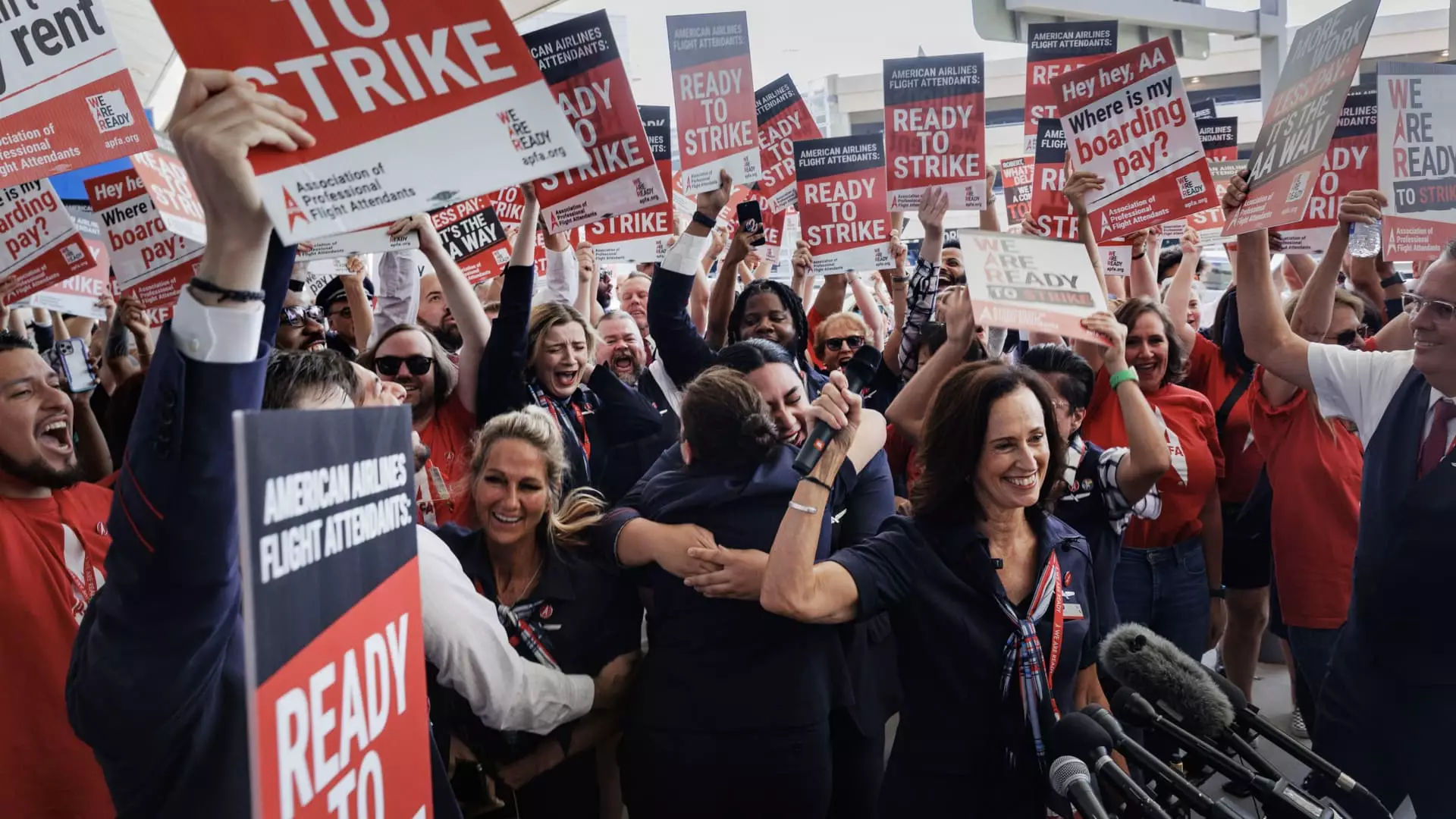In a significant development within the airline industry, American Airlines flight attendants have ratified a new five-year contract that promises substantial pay increases and ends a prolonged period of uncertainty and negotiations. With 87% of the voting flight attendants endorsing the agreement, this decision illustrates the cabin crew’s overwhelming desire for change, particularly in the wake of the Covid-19 pandemic that had severely impacted the airline sector’s labor dynamics.
The most striking feature of the new contract is the immediate wage enhancement of up to 20.5% for flight attendants effective from the start of October. This increase not only recognizes the value of the cabin crew’s work but also addresses the economic pressures that have emerged from rising living costs in recent years. Julie Hedrick, president of the Association of Professional Flight Attendants, emphasized that the new deal also incorporates substantial retroactive pay, compensating for the extended period of negotiations that left many feeling undervalued.
This achievement stands as a beacon of hope and progress for other airline staff amid an environment where labor negotiations have often resulted in dissatisfaction and unrest. The climb for better wages reflects a broader trend across various industries, where workers are increasingly advocating for their rights and financial safety nets.
The urgency around reaching this agreement was intensified by potential strike threats from flight attendants, which could have jeopardized operations and profitability for American Airlines. The involvement of Transportation Secretary Pete Buttigieg and Labor Secretary Julie Su in June negotiations signifies heightened governmental interest in stabilizing the airline sector, a critical component of the U.S. economy. Their presence also underscores the collective pressures from over 160 lawmakers urging a resolution to endemic labor disputes across the airlines.
While American Airlines has reached a pivotal agreement, it is important to note that other airlines are still navigating their own contract negotiations. United Airlines continues to wrestle with its flight attendants regarding their labor terms, whereas Alaska Airlines recently faced a rejection of a tentative deal from its cabin crew. The trend of rising wages and improved labor conditions appears to be gaining momentum, with parallels drawn between the airline sector and other fields like automotive and entertainment, where similar negotiations have led to significant increases, often following strikes.
The approval of this contract sets a precedent for the airline industry, highlighting the increased willingness of airline workers to assert their rights as they recover from the pandemic’s fallout. As other workers, such as those at Boeing, approach contract negotiations, they may find inspiration in the American Airlines’ flight attendants’ success.
Overall, the agreement is not only a significant milestone for American Airlines but also a reflection of a broader shift within the labor market, suggesting that negotiations for fair compensation and working conditions are likely to continue. Flight attendants can now take pride in their work while enjoying the benefits of their newfound contract, marking the beginning of a renewed era of labor relations in the airline industry.

